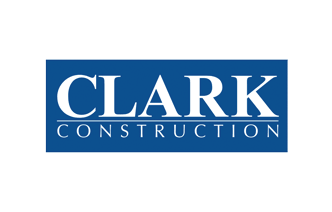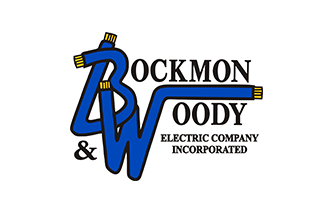Construction Project Management Training: Courses, Certifications, and Software Tutorials

To stay on top of your game and move ahead, you need to keep up-to-date on the latest practices and connect with other industry professionals. And if you have some off-site time on your hands right now, it’s the perfect time to go online and learn something. This guide should help you stay sharp with courses, podcasts, and certifications to add to your toolbox — of information!
Best online construction project management courses
Online construction management courses offer professionals the flexibility to enhance their skills at their own pace: Platforms like Udemy, Coursera, and LinkedIn Learning let students pause, review, and progress through modules as their schedules allow. Course durations and prices vary widely, making them accessible to a broad range of learners.
Coursera
An online learning platform that offers online courses, specialized programs, and degrees. Their courses are well-structured and they offer degree programs through top institutions (Stanford, University of Michigan, e.g.). Columbia University, for one, offers a specialization in construction management that includes courses on scheduling, cost estimating, cost control, and finance. Prices for courses and programs vary, ranging from $29 for a single 4-to-6-week course to $25,000 for some 3-year degrees.
Udemy
An open platform for instructors to create and market their courses. There are 150,000 courses and counting, including one on Primavera P6. Courses are available per diem (varying prices) and can be done at your own pace.
Linkedin Learning
Available by subscription and includes a free month trial. Unlimited access packages start at $20/month. A few of their offerings:
Specific to construction management, they have courses for planning, scheduling, and reading drawings and specifications.
YouTube
A treasure trove of useful videos. Although you may have to narrow down a search to focus on content posted by trusted companies or resources, you can find valuable videos through dedicated channels — like "Effective construction scheduling, University of Michigan lecture."
BONUS: Fieldwire's YouTube channel can help you and your team get up and running with our field collaboration solution.
How to prepare for construction certifications
Earning professional certifications is a powerful way to validate your expertise and stand out in the competitive construction industry. From management-focused programs like the CMAA-CCM and PMP to trade-specific certifications such as ACI and AWS, the right credential can open doors to new opportunities and higher earning potential. Nearly all of these certifications require research, planning, and preparation to pass — which you can do online.
Management-oriented certifications
Certified Construction Manager (CMAA-CCM)
The Construction Management Association of America (CMAA) offers a certification accredited by the American National Standards Institute (ANSI). Improve your marketability and earning potential while growing your professional network with this industry-standard certificate. You'll also learn to help your project owners mitigate risk by ensuring safety, reducing costs, and delivering projects on time.
Online prep: Exam Prep Tools
Requirements:
- 48 months of “responsible-in-charge” experience (across specific functional areas)
- Application/certification fee: $340 (member) / $440 (non-member)
- Exam registration fee: $290 (member and non-member)
- Exam format: computer-based test (CBT)
- Recertification required every 3 years via continuing education or retake of exam
Project Management Professional (PMP - PMI)
Although the PMP is not specific to construction, project management fundamentals provide a strong basis for further specialization. To become a PMP, you'll need to learn how to lead and direct project teams and successfully execute complex projects as well as how to manage the scope of a project and balance project schedule, quality, and overall cost.
Online prep: PMP Exam Prep (PMI)
Requirements:
- With a four-year degree (or equivalent): 36 months (3 years) of challengeable project leadership experience, and at least 4,500 hours leading & directing projects.
- Without a four-year degree: 60 months (5 years) of experience and 7,500 hours of leadership & direction.
- 35 hours of formal project management education (or a valid CAPM certification).
- Exam fee: ~US $405 for PMI members; $555 for non-members.
- The computer-based test (CBT) exam takes roughly four hours and has 180 questions.
LEED Professional Certification
The LEED Green Associate (GA) and LEED Accredited Professional (AP) credentials, both offered by the U.S. Green Building Council (USGBC), demonstrate your expertise in sustainable design, construction, and building operations.
Online prep: LEED credential exam prep
Requirements:
LEED Green Associate:
- No prior LEED project experience required.
- Exam fee: $200 (USGBC members) / $250 (non-members).
- The computer-based exam takes about 2 hours.
LEED AP with Specialty:
- Requires an active Green Associate credential (or you can take a combined exam).
- Experience working on a LEED project is recommended but not mandatory.
- Exam fee: $250 (members) / $350 (non-members). Combined GA + AP exam: $400 (members) / $550 (non-members).
- The exam is computer-based and can be taken online or at an approved testing center.
Design-Build Institute of America Certifications (DBIA)
Become a certified facilitator of Design-Build project delivery. Understand how to deliver a project in a unified effort from the designer and contractor, start to finish. You'll also develop an innovative and collaborative problem-solving and project management style.
Requirements:
- Bachelor’s degree and professional experience
- Completion of core coursework
- Application fee: $95, and exam sitting fee: $400 (for each attempt)
- Exam format: 100 questions, 2-hour limit
- Following approval and exam, candidates must earn 18 elective credits within one year
Safety and compliance certifications
OSHA 10- or 30-Hour Certifications
Learn how to identify, predict, and avoid hazards in the workplace and become a safety champion within your organization. Learn about confined space, crane safety, electrical risks, fire hazards, PPE, and other safety-related topics.
OSHA's online certifications costs $59 (10-hour) and $159 (30-hour), and are also available in Spanish.
National Association of Safety Professionals (NASP)
Become a certified safety manager to oversee and drive safety compliance and monitoring. Employ safety tools and processes for your organization. There is a range of certifications available that will equip you with the tools and resources you need to reduce job-related injuries and illnesses, focusing on human dynamics.
Cost and time commitment vary depending on the certification.
Technical/trade-specific certifications
National Commission for the Certification for Crane Operators (CCO/NCCCO)
Learn how to be a mobile crane operator, boom truck operator, crane inspector, drill rig operator, overhead crane operator, rigger, and more. This is a nationally recognized and internationally accredited certification program.
Requirements:
- Applicants usually must be at least 18 years old and meet physical / vision standards.
- Total cost for one operator certification (written + practical) ranges from $200 to $400 (check the CCO exam fees for specifics).
- Certification is valid for 5 years.
American Concrete Institute (ACI)
There is a growing list of organizations requiring these certification credentials. You'll learn concrete field/laboratory testing, concrete construction, anchoring, and specialty concrete (foundations, shotcrete, tilt-up) — to name a few.
Eligibility to qualify varies.
Review the various certifications here.
Cost, time commitment, and testing locations vary by certification.
National Association of Corrosion Engineers (NACE / AMPP)
There are 23 certifications for a variety of disciplines, including the industry-leading Coating Inspector Program (CIP) endorsement. Certifications include cathodic protection, pipeline, and specialty coating.
Eligibility to qualify varies.
Review certifications here.
Cost, time commitment, and testing locations vary by certification.
Certified Welding Inspector (AWS)
Certified welding inspectors ensure that welders adhere to strict guidelines and safety rules that keep everyone safe. The American Welding Society offers the only recognized certification for welders.
Preparation courses and seminars available online.
Autodesk Certifications (ACP)
This certification verifies that you have essential Autodesk software skills and industry knowledge. Increase your marketability with additional expertise in AutoCAD, Civil 3D, REVIT, and others.
The experience needed to earn an ACP certification typically comes from having worked with the software in a professional environment for at least two years, or the equivalent of approximately 400 hours, minimum - not a strict requirement but a common benchmark.
Requirements:
- Costs range from $150 to $250.
- The two-hour exams can be taken at a Pearson VUE Testing Center or online at OnVUE.
- Autodesk certifications are valid for 2 or 3 years, depending on the certification.
Licenses & trade certifications for construction pros
Whether you're already doing the job and seek recognition or wanting to up your game, a license qualifies you to do the job.
General Contractor
Do you have at least four years of professional construction experience as a journeyman, foreman, supervisor, contractor, or owner-builder? Become your own boss by becoming a Licensed General Contractor through your state’s licensing board. For California builders, for instance, the license criteria is here.
Preparation materials and coursework available online.
Professional Land Surveyor
Requires experience in land surveying and passing a Land Surveyor in Training (LSIT) exam — but the effort will allow you to practice as a professional surveyor and eventually own and operate your own surveying business.
Preparation materials and coursework available online.
Professional Engineer
A PE license requires a bachelor's of science degree in engineering and experience working under a licensed professional engineer as well as passing exams. The license allows you to sign and seal construction documents within your area of expertise. Eventually, you can own and operate your own engineering consulting firm.
Licensing is available through your state’s licensing board.
Preparation materials and coursework available online.
Trade schools, construction management degrees and university programs
There’s no single route into building a career in construction — and that’s a good thing. You can choose a trade school program or associate degree in engineering technology to build practical, job-ready skills, or aim for a bachelor’s or master’s degree to deepen your expertise and open doors to leadership roles. Each option offers a different balance of hands-on experience, theory, and long-term career growth.
Engineering technology
Obtain an online Associates Degree in Civil Engineering Technology. Learn the fundamentals of engineering and construction. Learn to prepare computer-aided drawings (CAD), surveys, estimates, and material testing reports, as well as to develop design criteria for roads.
Trade school
Learning a specialty construction trade in a niche market improves your marketability and ensures your skills are always in demand. Contact your local union to get information on training and apprenticeship programs.
The most useful trades to learn:
- Electrician
- Building automation & controls / HVAC
- Elevator mechanic
- Boilermakers
- Plumbers, pipefitters, and steamfitters
Learn more: Trade school for construction: Is this thing worth it?
Civil Engineering Degree (ASCE)
Obtain a Bachelor's of Science in an engineering discipline related to the design, construction, and maintenance of the physical and naturally built environment, including public works such as roads, bridges, canals, dams, airports, sewerage systems, pipelines, structural components of buildings, and railways.
Mechanical Engineering (Columbia)
This is a Bachelor of Science degree in an engineering discipline that combines engineering physics and mathematics principles with materials science so you can design, analyze, manufacture, and maintain mechanical systems. It is one of the oldest and broadest of the engineering disciplines.
UC Berkeley's Certificate Program in Construction Management and Leadership
UC Berkeley offers a certificate program (with online courses) in construction management and leadership. The coursework includes an introduction to BIM (virtual design and construction tech), sustainable construction practices, construction law, and management. Yes, it's expensive — but you'll get access to the UC Berkeley-approved advisory board to go along with that prestigious diploma.
Stanford's Civil and Environmental Engineering Graduate Certificate
Stanford offers an online certificate program in virtual design and construction. Learn advanced BIM skills and parametric systems design.
Stay in the know with top industry podcasts
With podcasts, you can take experts with you wherever you go (except the active jobsite).
The Contech Crew
Focused on the impact of technology in construction, the podcast features weekly interviews with innovators in construction software, 3D printing, laser scanning, robotics, and other breakthroughs in the industry.
Skilled AF
The podcast spotlights success stories from diverse voices connected to the skilled trades and construction community. Marielle Price, Chief Strategy Officer at Fieldwire, talked about leading construction tech with field-level insight in one of the podcast's episodes.
The World's Best Construction Podcast
From the creators of the video channel B1M, this podcast takes a deeper look at some of the industry's most incredible projects and innovations.
The Peggy Smedley Show
Fresh perspectives and deep industry expertise on IoT, AI, and construction's digital transformation from the renowned tech journalist.
Mass Construction Show
Covers real estate development, code, risk management, technology, and everything else construction.
The PreConstruction Podcast
Learn about the latest precon innovations from estimators and other leaders in the field, and also preconstruction success stories from general contractors, architects, owners, and subcontractors.
CONEXPO-CON/AGG Radio: Construction Technology Trends for Contractors Podcast
Field perspectives and stories from construction business owners about their successes, challenges, and more.
Buildings Podcast
The latest developments and practices in facility management, including energy management, lowering operating costs, maintaining commercial buildings, safety and security, sustainability, green issues, project management, and building performance.
Builder Tactics
Tools for new and seasoned construction management professionals looking to take their careers to the next level.
Design-Build Delivers
Guests offering real-world project solutions, best practices, and the latest design-build news and innovations.
ConstructorCast
All the news, views, and interviews relevant to the construction business in this monthly podcast from the AGC of America.
Build Better with Anastasia Barnes
Interviews with engineering, construction, and architecture professionals.



















